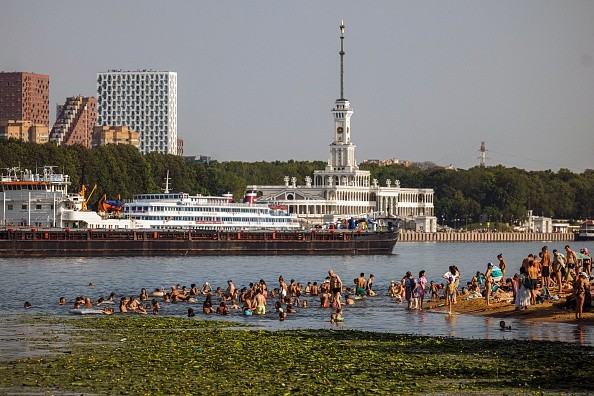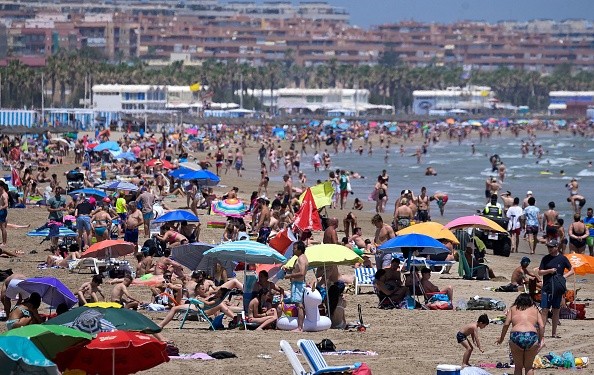Staying outdoors aids in reducing risks of infection, but heat has a trivial effect on the virus.
With the recent rise in temperatures and more people now gathering outdoors as restrictions have reduced, experts gave explanations of how much impact the weather has on Covid-19.

Hot Weather and Covid-19
Studies reveal that the season, and the temperature, have an impact on the spread of covid-19 but that impact is negligible.
A member of the UK's Scientific Advisory Group for Emergencies, or Sage, Prof John Edmunds, says the proof discloses that warmer temperatures affect spread but that the impact is minimal because most transmission takes place indoors.
An epidemiologist at the London School of Hygiene & Tropical Medicine, Edmunds, says "Transmission outside is minimal." Adding that majority of the transmission occurred in enclosed space and if there is sun outside viruses will die faster, but they wouldn't have survived too long in any case.
Why Viruses Like the Flu Thrive in Winter
They thrive in winter because even a little increase in a somewhat low R number can make a difference, as per Edmunds.
Either vaccination or natural immunity will make the reproduction number reduce. So a little change can let the reproduction number move a little bit above one, or a little bit below one. If it is a little bit above one in the winter you contract winter epidemics, and if in summer it is a little bit below one, less so.
Also Read : Despite Temperature Spikes, American Northeast May Experience Some Cooling Due to Stormy Weather
Ultraviolet Rays and Covid-19
Ultraviolet rays kill coronavirus, but as majority of Covid spread occurs indoors, again the difference is slight, says John Edmunds. He said UV kills viruses. So higher UV is not good for the virus, but it just matters outside. And due to the fact that nearly no transmission happens outside anyway, it doesn't make so much difference.
Dorigatti reveals that the imperial study concentrated on temperature and does not particularly look at UV but that different studies, conducted by the Yale professor Yiqun Ma and others, have discovered that higher UV rates could play a role in decreasing transmission rates.

Does the Heat Type Impact Transmissibility?
One study carried out by scientists in China, that hasn't been peer reviewed, gave a suggestion that death rates were lower on days with higher humidity and temperatures.
Dorigatti reveals other studies by Yiqun Ma and Mohammad M Sajadi had discovered a role for humidity, with lower humidity linked to higher transmission rates, indicating that humid heat may decrease transmission more than dry heat.
Can People Worry Less About Covid in Warmer Weather?
In summary, no. Another researcher on the Imperial College London study, Dr Will Pearse, reveals the critical information is that the weather is just a little factor in the transmission of Covid.
Related Article : Air Pollution: People Inhaling Dirty Air More Likely to Experience Severe COVID-19 Symptoms
For more news, updates about Covid-19, weather and similar topics don't forget to follow Nature World News!
© 2025 NatureWorldNews.com All rights reserved. Do not reproduce without permission.





